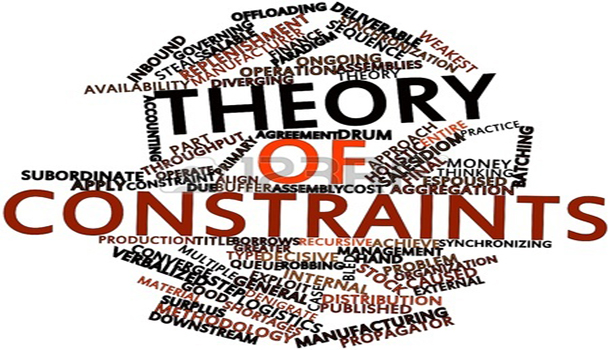Necessary demand-driven components: How TOC delivers powerful results
I grew up in a home where my family held daily quizzes around the dinner table about what we learned during the day at work or school. These topics ranged from Astronomy to current events – yet what this experience instilled in me was not so much knowledge in specific disciplines, but the idea that I could learn something new each day. And even if I was not directly exposed to new knowledge, these moments showed me that the people I associated with during each day were a rich source of knowledge by sharing what they learned with me.
As I entered the workforce after college, I began another learning process. I found to my dismay that not all I learned in the university was directly applicable at the manufacturing companies where I worked. Each company seemed to have their own definitions for their processes and believed that their environments were completely unique. This attitude created production practices that seemed needlessly complex. I often thought, “There has to be a better way.”
It wasn’t until my first management job that I finally found some answers. I was introduced to The Goal, by Dr. Eliyahu M. Goldratt and Jeff Cox. This book was a watershed moment for me, in that it shed light on some of the assumptions I had seen at play within all of the organizations I had known.
Since that time, using principles of the Theory of Constraints (TOC) in The Goal, I have researched, taught, and applied many approaches to overcome the assumptions that prevent organizational growth, employee development and increased profitability. Drum-Buffer-Rope scheduling, Thinking Process Jonah Training, Six Sigma Black Belt Training, extensive research on the Toyota Production System, Lean principles, and study in Deming’s Theory of Profound Knowledge all contribute my repertoire of improvement methods.
During these blog discussions, I would like to share the insights that I have gathered across many manufacturing environments and over decades. I hope that similar to those dinner table discussions of my youth, you will bring your insights and share some of your knowledge here, as well.
My expertise focuses on the Theory of Constraints; Lean manufacturing; and creating a culture of continuous improvement within a demand-driven manufacturing framework. I will be talking about how these theories can be put into practice to drive your production success. We’ll learn about:
- The genesis of the Theory of Constraints and why it matters to your business
- Using constraints management to drive practical change for profitable results
- The kinds of constraints you will encounter and how to deal with them
- What measurements drive the behavior for improvement
- And more…
My goal is to bring the valuable science inherent in these systems to you in an accessible way. Yet I will also make sure to deliver practical advice and examples of how I have seen a TOC focus make a world of difference at companies large and small. Just as gravity is an immutable law of nature, to me, the TOC is an immutable law of manufacturing success. And just like any laws, the best ones sort out complexity. I finally got my answer to, “There has to be a better way.” I hope I can help answer the same thing for you.
– Rick Denison
 Rick is the “Dr. Who” of manufacturing operations and logistics. And while Rick doesn’t travel through time, he is adept at leading change – and saving time – in a diverse range of manufacturing environments through Lean manufacturing, Six Sigma, and TOC techniques. Rick’s posts address how demand-driven matters and draws from his background in process improvement, change management, project management, information systems implementation, and profitability analysis.
Rick is the “Dr. Who” of manufacturing operations and logistics. And while Rick doesn’t travel through time, he is adept at leading change – and saving time – in a diverse range of manufacturing environments through Lean manufacturing, Six Sigma, and TOC techniques. Rick’s posts address how demand-driven matters and draws from his background in process improvement, change management, project management, information systems implementation, and profitability analysis.

